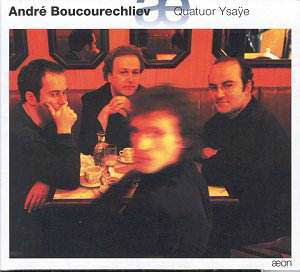 Composer: Fire
Composer: Fire
Works: Carmen Fantasy, Méditation, Tzigane, Romance in F minor, Romance in F major, Air from Suite No.3, Zigeunerweisen
Performers: Sarah Chang (violin), Berlin Philharmonic Orchestra, Plácido Domingo (conductor)
Recording: Recorded at the Philharmonie, Berlin, June 2001
Label: EMI
The recent recording “Fire and Ice” featuring the virtuosic Sarah Chang presents a collection of popular works for violin and orchestra that traverse the operatic and concert repertoire, including selections from Massenet and Ravel, alongside Sarasate’s flamboyant Zigeunerweisen. Each piece is emblematic of the late Romantic and early 20th-century violin canon, where technical prowess and dramatic expression are paramount. Chang, now an established figure in classical music, confronts both the challenges and expectations of these well-trodden works, offering listeners a blend of the familiar and the unexpected.
As the album opens with Sarasate’s Carmen Fantasy, the initial impression is somewhat disconcerting. Chang’s vibrato, at times excessively wide and unsteady, obscures the melodic lines, leading to an interpretation that lacks the seductive allure typically associated with this piece. This choice, whether intentional or the result of a lapse in execution, creates an uneven start to the disc. However, the subsequent tracks reveal a more nuanced approach. Massenet’s Méditation is delivered with a sweetness that, while perhaps leaning toward the saccharine, captures the emotional essence of this interlude. Yet, one cannot help but feel that a more restrained interpretation could yield a deeper resonance.
Ravel’s Tzigane emerges as a highlight, showcasing Chang’s technical command and fiery interpretation. The piece demands not only virtuosity but also an understanding of its gypsy idioms, which she largely fulfills. Nevertheless, comparisons with Renaud Capuçon’s recent recording with Daniel Harding reveal a more cohesive integration of orchestral color and soloist interaction that elevates the interpretation beyond mere display. The Dvořák Romance offers a contrast in style, characterized by elegance and lyrical phrasing, yet it risks emotional dilution when compared to more impassioned renditions available in the catalog.
Beethoven’s Romance in F major further exemplifies Chang’s stylistic choices, with a performance that is polished yet overly cautious at times. The phrasing, while stylish, lacks the urgency that Beethoven’s lines can evoke, leaving the listener yearning for a greater sense of drama. This is particularly evident in the recording’s treatment of Bach’s Air, which feels somewhat trivialized in its arrangement for violin on the G string, a decision that simplifies the harmonic richness of the original composition and undermines its regal character.
the Berlin Philharmonic under Domingo’s direction appears to fulfill its role with professionalism but lacks the enthusiasm that might otherwise elevate the performance. The orchestral parts, while technically sound, often feel like an afterthought, serving merely to support Chang’s solo lines rather than engage in a dynamic interplay. This impression is compounded by the recording’s engineering, which, while clear, does not fully capture the orchestra’s depth and range, leaving the listener with a sense of sonic distance.
The title “Fire and Ice” suggests a dramatic dichotomy that the recording fails to convincingly deliver. Instead of a compelling interplay of extremes, the album presents a collection of performances that oscillate between moments of fiery technical display and softer, less engaging interpretations. The journey through these beloved works, while featuring commendable moments, ultimately results in a product that feels more like an exercise in bravura than a cohesive artistic statement.



